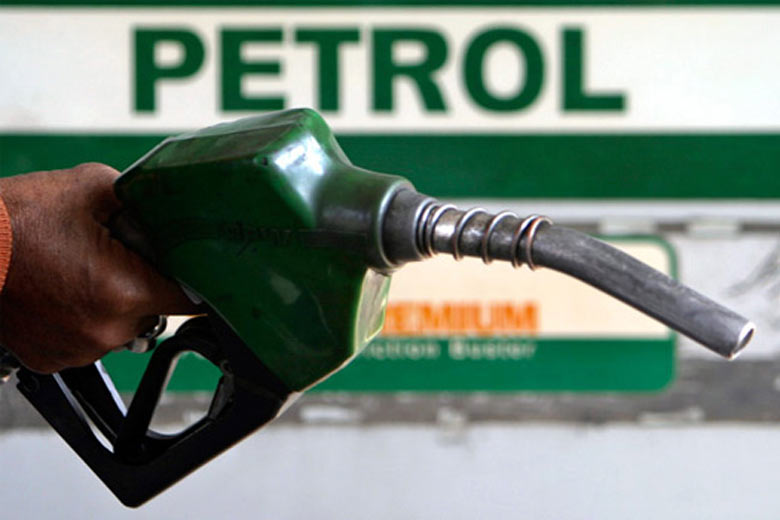- Petrol Price Fail to Crash Despite Kachikwu’s Assurances
Fifteen months after the price of Premium Motor Spirit, otherwise known as petrol, was increased by 68 per cent, consumers have yet to see any significant decrease in the price, contrary to the promise by the Minister of State for Petroleum Resources, Dr. Ibe Kachikwu.
The Federal Government on May 11, 2016 announced the removal of fuel subsidy, with a new petrol price band of N135 to N145 per litre, up from N86 and N86.50.
It said with the liberalisation of the downstream sector, “any Nigerian entity is now free to import the product, subject to existing quality specifications and other guidelines issued by regulatory agencies.”
Following opposition by many Nigerians to the fuel hike, Kachikwu said by opening up the space for people to perform, to practise their trade, “you will be amazed at what will happen to your N145 price because it will go downwards.
“We mean well and Nigerians should please trust us. Give us a chance; you will be surprised what will become of your PMS’ price over the next six to eight months.”
More than a year after the hike, a litre of the PMS is still being sold for N145 or more in many parts of the country.
States with the highest average price of the PMS in August were Plateau (146.4), Rivers (145.5) and Zamfara (N145.4), according to the latest Premium Motor Spirit Watch obtained from the Nigerian Bureau of Statistics.
It said states with the lowest average price of the PMS were Nasarawa (N143), Oyo (N143.2) and Lagos and Ondo (N143.3).
The NBS said the average price paid by consumers for the PMS decreased by 1.9 per cent year-on-year and by 2.5 per cent month-on-month to 144.4 in August from N148.2 in July.
Asked when the price of fuel would come down at a media chat on Twitter on Monday, Kachikwu said, “Anything can affect the pricing either way as recently seen in the US where the hurricane induced an almost 15 per cent increase.
“Efficiency of refineries will definitely help,” the minister said, adding that there were plans to refurbish the nation’s existing refineries.
Early this month, the Nigerian National Petroleum Corporation claimed that its sustained strategic intervention in the efficient supply and distribution petroleum products had led to “significant fall in the prices of the Premium Motor Spirit nationwide.”
It said a national survey by Oil and Gas Forum, the NNPC’s weekly TV programme, indicated that in the last few weeks, the price of petrol had fallen steadily from N145 per litre to between N142 and N143 per litre in some stations across the country.
The corporation said the study showed that the NNPC mega and affiliate stations across the country were selling the product for N143 per litre, while the pump price ranged between N142 and N145 per litre in some major and independent marketers in Lagos, Abuja, Sokoto, Enugu, Delta and other major cities.
Energy specialists at Ecobank Capital, in a new report, noted that the NNPC recently started stockpiling the PMS with aim of securing a stable supply while the refineries would undergo some rehabilitation and to prevent any significant social, economic and political problems in the event of oil supply shortages.
According to the report, there is an accumulated 1.64 billion litres of petrol in stock which will last the country up to 46 days of petrol consumption, with an additional 1.125 billion litres expected to be delivered by the end of this month, raising the country’s storage to about 79 days of petroleum consumption (35 million litres daily).
The Head of Energy Research, Ecobank, Mr. Dolapo Oni, said, “In our opinion, the presence of this stockpile could considerably support further reduction in the pump price of petrol. However, the reduction is based entirely on the NNPC’s decision to sell at a lower price as against a market-driven reduction in prices.
“This is largely because as the largest importer of petrol at the moment (about 99 per cent of imports), the NNPC also decides in conjunction with the Petroleum Products Pricing and Regulatory Agency what the ex-depot and, by extension, the pump prices should be.”
According to the Ecobank analysts, the actual landing price of petrol is likely higher than the current N130/litre at which marketers are able to lift products at the depots.
They said adjusting for transport time (thus, using prices from July/August), the average tonne of petrol from Europe would have landed offshore Nigeria at N143.55/litre.
“Pump prices would have risen to N161, if current distribution margins were retained. This implies an implicit subsidy of about N31/litre on products. This explains, to some extent, the NNPC’s under recovery of about N79.5bn by the end of June 2017,” they said.
The analysts said with most marketers unable to source adequate foreign exchange to import, commercial storage levels were at an all-time low with most depot owners recording all-time low levels of throughput flows at their storage depots.
According to them, the potential shock from supply shortages could easily force pump prices to rise above current national average of N144.44 in August.

 Naira4 weeks ago
Naira4 weeks ago
 Naira4 weeks ago
Naira4 weeks ago
 Travel3 weeks ago
Travel3 weeks ago
 Jobs4 weeks ago
Jobs4 weeks ago
 Naira3 weeks ago
Naira3 weeks ago
 Naira3 weeks ago
Naira3 weeks ago
 Investment4 weeks ago
Investment4 weeks ago
 Travel4 weeks ago
Travel4 weeks ago




























